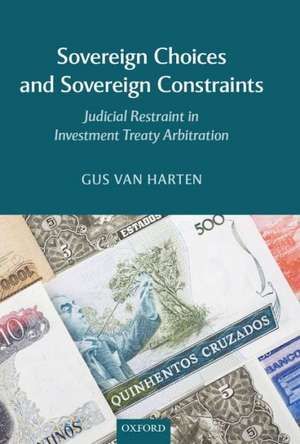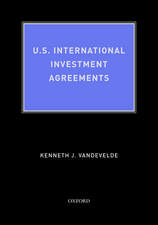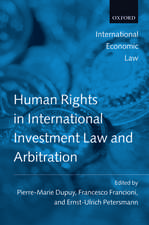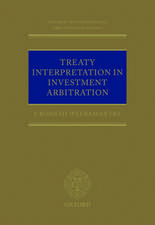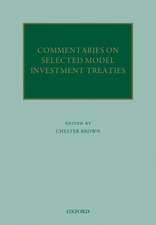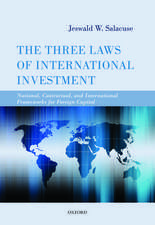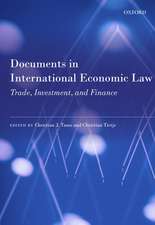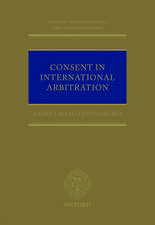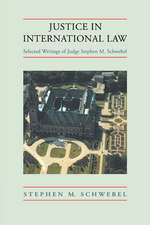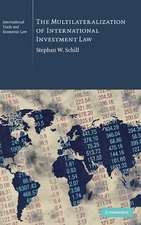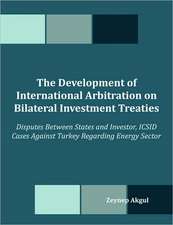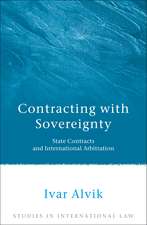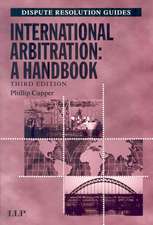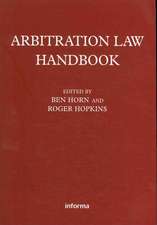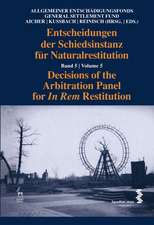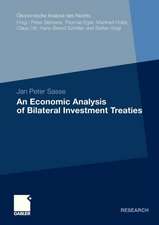Sovereign Choices and Sovereign Constraints: Judicial Restraint in Investment Treaty Arbitration
Autor Gus Van Hartenen Limba Engleză Hardback – 3 oct 2013
Preț: 743.76 lei
Preț vechi: 1070.07 lei
-30% Nou
Puncte Express: 1116
Preț estimativ în valută:
142.34€ • 148.05$ • 117.51£
142.34€ • 148.05$ • 117.51£
Carte tipărită la comandă
Livrare economică 01-07 aprilie
Preluare comenzi: 021 569.72.76
Specificații
ISBN-13: 9780199678648
ISBN-10: 0199678642
Pagini: 218
Dimensiuni: 163 x 241 x 20 mm
Greutate: 0.48 kg
Editura: OUP OXFORD
Colecția OUP Oxford
Locul publicării:Oxford, United Kingdom
ISBN-10: 0199678642
Pagini: 218
Dimensiuni: 163 x 241 x 20 mm
Greutate: 0.48 kg
Editura: OUP OXFORD
Colecția OUP Oxford
Locul publicării:Oxford, United Kingdom
Recenzii
Praise for Investment Treaty Arbitration and Public Law Thoroughly engaging, the book provides a thoughtful and critical reflection on the use of international arbitration to resolve regulatory disputes between foreign investors and states... one of the best available and current descriptions of the development of the international treaty regime.
An academic grenade lobbed at the ever growing number of investor-state disputes and the arbitral procedures that govern them... [A] succinct, refreshingly jargon-free, and scholarly censure of the foreign investment arbitral regime... Van Harten has produced a strong critique of the process by which the modern world addresses disputes arising from the estimated $ 1.5 trillion in investment flows that now cross national boundaries each year... defenders of the nearly 3000 investment agreements that exist... will find much to ponder in this ringing broadside against a regime that is often lauded as an essential building bloc of globalization, economic development, and the rule of law.
An academic grenade lobbed at the ever growing number of investor-state disputes and the arbitral procedures that govern them... [A] succinct, refreshingly jargon-free, and scholarly censure of the foreign investment arbitral regime... Van Harten has produced a strong critique of the process by which the modern world addresses disputes arising from the estimated $ 1.5 trillion in investment flows that now cross national boundaries each year... defenders of the nearly 3000 investment agreements that exist... will find much to ponder in this ringing broadside against a regime that is often lauded as an essential building bloc of globalization, economic development, and the rule of law.
Notă biografică
Gus Van Harten is Associate Professor of Law at Osgoode Hall Law School. He previously taught at the London School of Economics. He is the author of Investment Treaty Arbitration and Public Law (OUP, 2007). His research examines international and comparative aspects of public law, including procedural aspects of public inquiries and national security confidentiality. He worked previously on the Arar Inquiry, on the Walkerton Inquiry, and as a law clerk at the Ontario Court of Appeal. He received the William Robson Memorial Prize from LSE, a doctoral fellowship from the Social Sciences and Humanities Research Council of Canada, an Overseas Research Award from Universities UK, and a Research Award from the Canadian International Development Agency.
